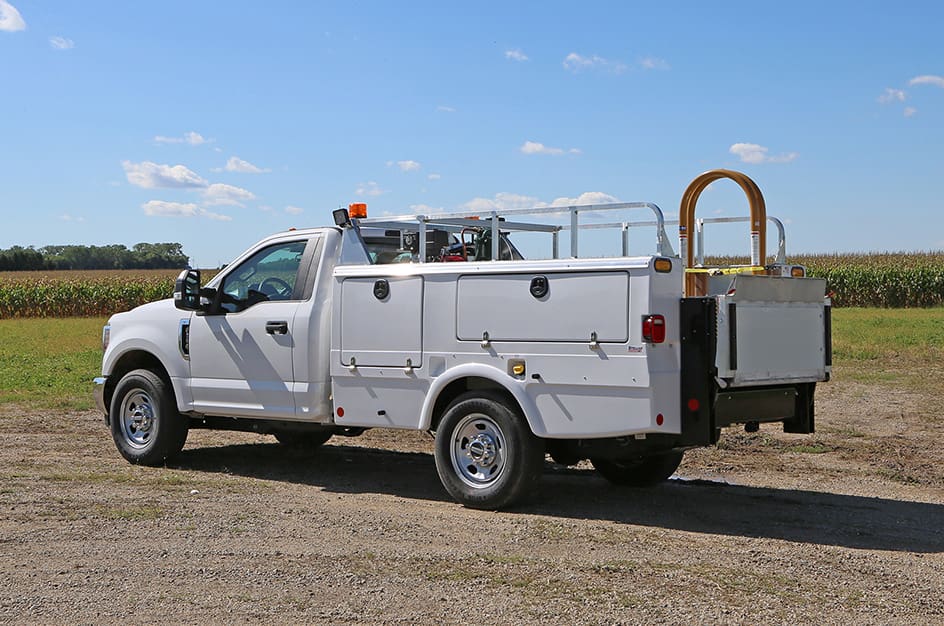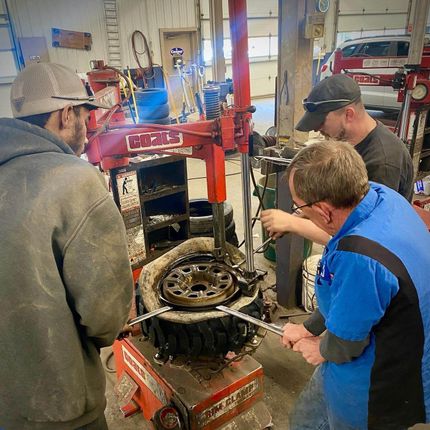Drive with Self-confidence: GMC Tires Service at Morris Tires
Wiki Article
Tire Service: The Influence of Climate Condition
When it comes to making sure ideal efficiency and safety on the roadway, comprehending the impact of weather condition conditions on tire solution is crucial. GMC Tire Service. In this discussion, we will check out the complex relationship between weather condition problems and tire solution, losing light on the relevance of weather-specific tire upkeep practices and considerations.Warmth and Tire Performance
When exposed to high temperatures, tires experience changes in performance that can substantially influence lorry safety and security and handling. The warmth generated from long term driving or warm climate conditions creates the tire rubber to soften, leading to decreased step life and boosted wear. As the rubber ends up being softer, the tire's hold on the roadway lessens, influencing stopping distances and general traction. In extreme instances, excessive warmth can even cause tire blowouts, positioning a serious safety and security threat to the car and its residents.
Cold Weather Impacts
Cold climate problems can have a considerable influence on tire performance and safety and security. In cool climate, tires may likewise shed air stress a lot more swiftly, which can influence managing and fuel effectiveness.To reduce the results of winter on tires, it is essential to frequently check tire pressure and inflate them to the manufacturer's suggested levels. Using wintertime or all-season tires created for cool climate problems can additionally boost traction and grasp on icy or snowy roadways. Correct tire upkeep, including routine evaluations for wear and damage, ends up being even more vital during cooler months to guarantee optimum efficiency and security.
Rainy Issues Effect
Tires with worn-out treads are more vulnerable to hydroplaning, where a layer of water builds up in between the tire and the road surface area, leading to loss of grip. To fight this, motorists should frequently inspect their tires for ample tread depth and think about spending in tires particularly made for damp conditions.Moreover, wet climate can additionally reduce exposure, making it challenging for motorists to see the roadway in advance clearly (GMC Tire Service). In such conditions, it is vital to change driving speeds accordingly and maintain a risk-free complying with distance to permit unexpected quits. Correctly filled with air tires can also assist in keeping control on damp roadways by providing much better handling and grasp
Snow and Tire Safety
When driving in snowy problems, having the right tires can make a substantial difference in safety and performance. Winter months here are the findings tires are designed with unique rubber compounds and tread patterns to provide much better grip on snow and ice compared to all-season tires.
In addition, motorists need to think about mounting tire chains in extreme snowy problems. Tire chains offer added grip by grasping the snow and ice, enhancing stability and control. However, it is very important to comply with supplier instructions when using and my explanation installing tire chains to stop damages to the tires and car. By picking the ideal tires, maintaining proper rising cost of living, and taking into consideration additional traction aids like tire chains, chauffeurs can boost their safety when navigating snow-covered roads.
Weather-Related Tire Maintenance
When faced with different climate conditions, proper tire upkeep becomes a vital facet of automobile safety and efficiency. Weather-related tire upkeep incorporates a variety of practices intended at guaranteeing ideal tire feature and longevity in different weather condition scenarios. One key facet of weather-related tire upkeep is tire pressure regulation. Rising and fall temperatures can create tire stress to vary, affecting grip and fuel performance. Regularly readjusting and examining tire stress according to supplier recommendations is vital for risk-free driving in transforming weather condition problems. Additionally, tire tread depth plays a substantial duty in taking care of various climate elements. Tires with appropriate step deepness offer much better grasp on wet or icy roadways, lowering the danger of skidding or hydroplaning. When step wear gets to a specific depth is important for maintaining traction and security in unfavorable climate, checking tire tread routinely and changing tires. By focusing on weather-related tire upkeep, chauffeurs can boost safety and security, enhance lorry performance, and prolong the life-span of their tires.
Conclusion
Finally, climate condition have a substantial effect on tire efficiency and security. From warmth impacting tire stress and wear to winter minimizing grip, it is important to think about the climate when find here keeping and using tires. Rainy problems can decrease grip and lead to hydroplaning, while snow can raise the threat of crashes if tires are not properly outfitted. Weather-related tire maintenance is vital in ensuring optimum performance and safety when driving.In this discussion, we will certainly explore the detailed partnership between climate conditions and tire service, shedding light on the value of weather-specific tire upkeep practices and factors to consider.

Report this wiki page